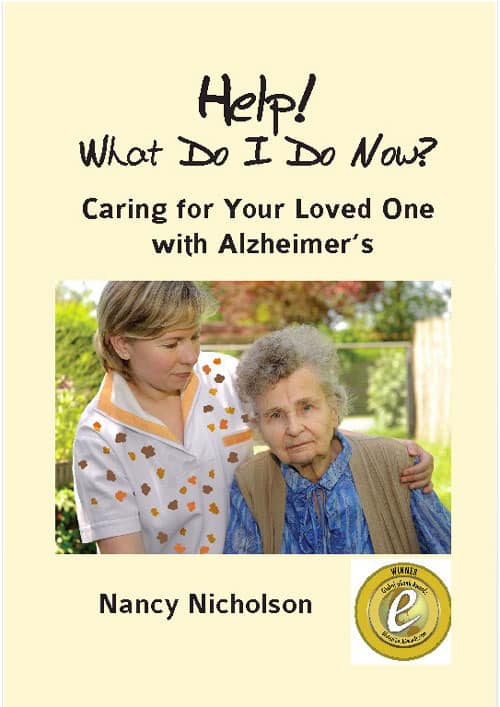Today is designated as World Alzheimer’s Day, a day to raise awareness of Alzheimer’s and other forms of dementia. There are many tragic diseases that destroy the body; what makes dementia so tragic is that it destroys the memory and the personality.
I cared for my husband for several years until his death two years ago. I watched him change from a gregarious, outgoing person to a recluse who avoided people and social situations. He lost the ability to do simple, everyday activities, such as make a phone call or answer an email. Instead of showing respect and love, he sometimes exploded in verbal and physical expressions of anger. He didn’t want to shower or change clothes or brush his teeth. On the surface, he was no longer the man I married.
My husband was the second person with dementia I cared for. Along with my mother and two sisters, I was a caregiver for my father for seven years. My grandfather died in the state mental hospital when I was twelve years old because the family couldn’t care for him. Back then, the diagnosis was “hardening of the arteries,” Alzheimer’s wasn’t well-known, but he exhibited the same symptoms of dementia as my father and husband did years later.
You will find a lot of information about dementia here on my blog. Just enter “Alzheimer’s” in the search box. Because I have experienced dementia in people I loved, I want others to be aware of the prevalence, symptoms, and care for Alzheimer’s and other forms of dementia. I have written blog posts about my personal experiences as well as posts with factual information and links to Alzheimer’s organizations and sources of information.
Another thing I have done to help raise awareness is edit a book for my sister, Nancy Nicholson. Help! What Do I Do Now?: Caring for Your Loved One with Alzheimer’s
is an excellent resource for first-time caregivers. Written in an easy-to-read conversational tone, it describes various situations and behaviors that are common, with practical suggestions on how to deal with them. Above all, it encourages caregivers to make this time a positive experience, to find joy in caring for loved ones.
I can say from personal experience that there can be joy in caregiving. Of course, there are frustrations and stresses and tears, but there are also moments of great joy. Sometimes Jack and I would sit quietly on the front porch, and Jack would look at me and say, “We have a good life, don’t we?” I always agreed—and we really did. I was so blessed to be able to care for him at home, to be able to work when he didn’t need my attention and to stop work at any time and give him my full attention. He was so worried that he would forget me, as my father forgot my mother and all his children, but—praise God—that didn’t happen. The following incident was one of those moments of great joy that happened near the end of his life.
About a week before he died, we were in a nursing home while arrangements were made to accommodate his needs at home and to provide constant care since I couldn’t care for him alone. Jack never knew he was in a nursing home—he thought he was still in a hospital. We had a private room, and I stayed in the room with him. One morning I was in the bathroom getting dressed, and I heard him talking to a nurse. She said, “Your wife sure takes good care of you.” He said, “Yes, she does. We both meant it when we said, ‘for better for worse, for richer for poorer, in sickness and in health, to love and to cherish, till death us do part.’” He repeated those exact words at a time when he couldn’t carry on a conversation. He couldn’t remember what happened five minutes before, but he remembered our wedding vows from more than forty-five years ago. ~ excerpted from Jack Stories: Favorite Memories of Jack Jordan Ammann Jr, a collection of stories and anecdotes shared by many friends and family members

